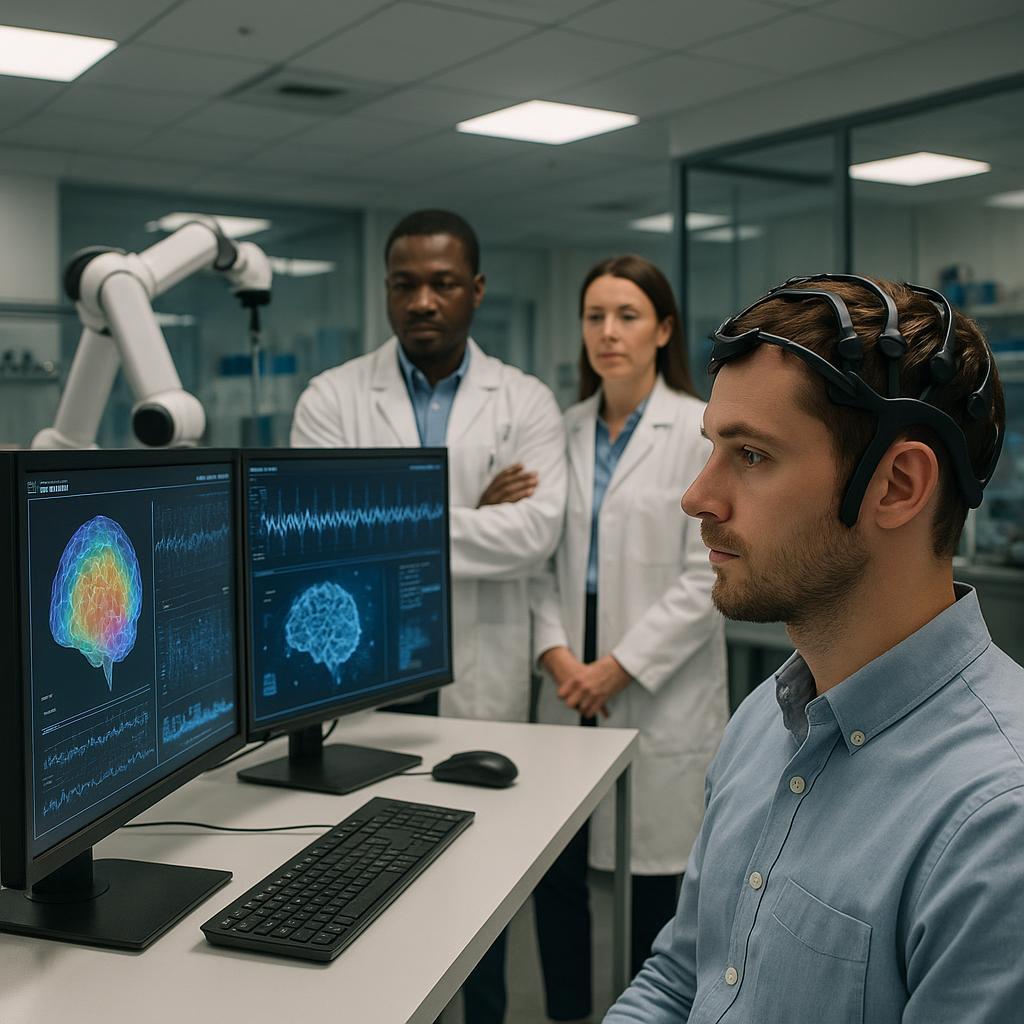Revolutionary AI-Powered Brain Interface Unveiled by UCLA Engineers
Researchers at UCLA have made a significant breakthrough in the field of brain-computer interfaces. They have developed a wearable, non-invasive system that combines EEG signal decoding with AI to interpret user intentions in real-time. This innovative development represents a significant leap over surgically implanted alternatives, offering a safer and more accessible path to brain-computer interaction.
The cutting-edge device has been successfully tested on both able-bodied participants and a paralyzed individual. It enabled them to complete complex tasks such as cursor control and robotic arm manipulation. The AI-assisted interface boosted performance by nearly 4x compared to systems without AI control, demonstrating the transformative potential of integrating brain signals with artificial intelligence.
The system employs a vision-based AI co-pilot that works in tandem with EEG signal decoding. This collaboration creates a more intuitive and responsive interface. The research, published in Nature Machine Intelligence, could revolutionize assistive technology. It holds the potential to greatly improve the lives of individuals with paralysis and other mobility challenges, all while avoiding the risks associated with surgical brain implants.

